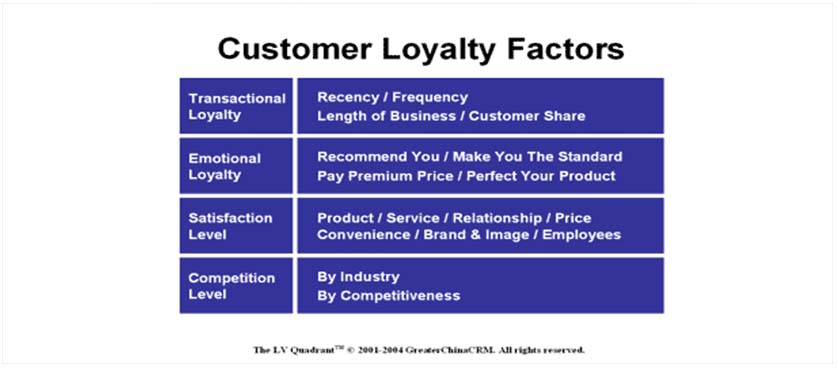Metrics for assessing and improving customer loyalty
Customer loyalty has been for long time one of the main areas of focus for marketers. Although arguable in some cases, it is widely mentioned that usually the costs of dealing with existing, loyal, clients are significantly lower than the costs for attaining new customers. Thus, retaining and increasing business with existing customers is top priority on marketers’ agendas, nearly in all industries and organizations of all types and sizes.
Many resources exist on the issue of customer loyalty, researching aspects such as the factors driving loyalty, the benefits of having loyal customers and how can loyalty levels be assessed and improved.
In this context, “The Wise Marketer” (a website specialized on customer loyalty) reports on loyalty strategies, principles and best practices, by the means of the Loyalty Guide that reached the fourth volume in 2010.
The Loyalty Guide outlines that customer loyalty strategies and initiatives need to be supported not only in the planning stages, but also during implementation and development (The Wise Marketer, 2010). The same source argues that applying solid mathematics, statistics and scientific measurement is the only way to assess the impact the program is likely to have on profitability and the customer base.
It is argued that customer loyalty itself can be difficult, sometimes impossible to be measured with accuracy, as it involves a high degree of subjectivity and emotions (The Wise Marketer 2010). However, performance measures should be defined or selected in order to assess sub-parts or expected effects of customer loyalty (such as the impact on profits).
The Loyalty Guide suggests several measures to be employed in this context (The Wise Marketer 2010), some of which we invite you to explore on smartKPIs.com:
- % Share of wallet
- $ Lifetime value of a customer
- % Customer retention
- % Customer attrition
- $ Customer profitability
- % Net Promoter Score
Additionally, smartKPIs.com contains other customer loyalty metrics you can find useful in your customer engagement initiatives, such as:
- % Account expansion – to see how the loyalty translates into increased business with customers
- # Price elasticity – that will help assessing the extent at which customers are loyal when having to face a raise in prices
- % Customers participating in loyalty programs – to monitor how well your loyalty programs are welcomed among customers
- % Sole usage – a very important measure of customer engagement, indicating how much of the customer base does not buy at all from competition
- $ Average retention cost – it helps you track how much it costs to retain clients and whether you do it in a profitable manner
To explore further examples of KPIs used to measure customer loyalty, engagement, segmentation and profitability, visit the Key Performance Indicator examples for Marketing & Communications Functional Area available on smartKPIs.com.
References
- smartKPIs.com 2010, Key Performance Indicator examples in Marketing & Communications Functional Area
- The Wise Marketer 2010, The Loyalty Guide 4 – Executive Summary
- The Wise Marketer (2010)
- Glogster

Tags: KPI, KPI in Practice, Loyalty Guide, Performance Measurement, The Wise Marketer






